Knowing how much to tip your fly fishing guide is an essential part of the fly fishing experience. So, it’s no surprise that this question comes up often, how much should you tip a fishing guide?
You should plan to tip your guide between 15% and 25% of the booked day rate. Base your tip on your guide’s diligence, friendliness, skill, willingness to teach and go the extra mile. Since your guide cannot guarantee how many fish you catch, this should not be a primary tipping factor.
We at Fly Fishing Fix firmly believe in, and advocate for a good tip, regardless of how many fish you catch. In other words, since so many unpredictable factors go into whether or not fish will be in the mood to eat on any given day, the amount of fish your guide helps you catch should not be your prime tipping consideration. Trust me, and guides know this well, a big day makes all of us more generous, but there are several other attributes and intangibles that go into your tip size decision.
So what makes a good guide? That’s what we’re going to cover in this post. Afterwards, you’ll have a much better feel for how much you should tip.
Disclaimer: This post may contain affiliate links, meaning we will receive a small commission (at no cost to you) if you click through and make a purchase.On Time, Prepared, And Planned-Ahead
I’ve been blessed in this regard. I’ve never had a guide show up late, nor have I ever had a guide that didn’t have a general plan for the day ahead.
You’d think these two basics would be sacrosanct in the Good Fishing Guide Handbook (if there is such a thing) but, unfortunately, they aren’t. All too often, I’ve had friends tell me stories of their guide nightmares, and they all start with the guide being late and lacking a plan.
Whenever I take a guide, my first tip size determiner is whether or not he or she is at the appointed meeting place, ideally, before I’ve arrived. Next, after a hearty and firm handshake, and the requisite meet and greet, I want to hear my guide’s general plan for the day. I also want my guide to ask about what I’d like to do, and, if possible, blend it into or adapt our plan accordingly.
The last sentence has one caveat that may go without saying, however, if what I want to do is a bad idea, say, because the stretch of river I want to fish has recently been defiled by a muddy runoff from one of its tributaries, I certainly want my guide to let me know about it and advise against it.
Related Content:
- How Often Should You Clean Your Fly Line?
- Fishing The Bighorn River In Montana: The Ultimate Guide
- 10 Baetis Nymph Patterns You Need To Try
- Why Is Fly Fishing Addictive?
- What To Wear Under Waders In Summer
- 25 Best Dry Flies For Colorado Fly Fishing
Positive attitude
Because there are many things that are worse, I’m not going to say that there is nothing worse than a fishing guide with a negative attitude, except that there is nothing worse than a fishing guide with a negative attitude.
When a fly fishing day is finally upon us, we fly fishing anglers arrive — sometimes having traveled hundreds or thousands of miles to get there — with glee and hope in our hearts. The last thing we want is to be hit with is finding out our expensive guide is Negative Ned or Naysayer Nancy. That is not to say that we don’t want to be made truthfully mindful of the conditional challenges the day might hold in store, however, there is a vast difference between:
“Hey guys! Looking forward to smokin’ out some fish for you today. They bumped the river flow this morning, so the fish may be a little disoriented for awhile, but I’m going to do my level best to find their new feeding lanes for ya! Either way, it’s going to be a great day!”
And:
“They bumped the river flow this morning, so it’s going to be tough to hook up on any of ‘em today. Hope you’re ready for a long day.”
You’ll immediately know what you’re in for all day when you hear it right out of the gates. For me, a negative attitude may be the single biggest tip reducer. By the way, when booking your guide, it’s certainly okay (and a good idea) to let the booking entity know what you’re looking for in a guide’s personality.
More on that later.
Has showered recently
Oh man! While I’ve never had a guide show up late or not have a plan for the day, I have had guides who clearly hadn’t seen the business side of a shower in far too long. Okay, I get it, fishing guides like to look the part. This usually includes: a Charlie Blackmon beard; the weathered faces of mountain climbers; hands roughed by hundreds of days on the oars, in the sun, and on the water; a dirty, sweat-stained, threadbare cap; a stretched and faded neck buff, and waders and boots that look like they were bought for six bucks at some legendary ol’ angler’s recent estate sale. In fact, I sometimes wonder if there’s a secret costume store where new fishing guides can go to buy this stuff so that they can look the part right off the rack.
In all honesty, I love “the look” of a good fishing guide. It’s as important to the fly fishing zeitgeist as stethoscopes, scrubs and lab-coats are to a medical campus, but, it’s the look we’re expecting that matters, not the smell, thank you very much.
Don’t get me wrong, we’re not expecting roses and lilacs here, but evidence of a guide’s recent encounter with a bar of Irish Spring is an unspoken tip-enhancer!
Reasonably clean vehicle
The next time I get into a nice, clean and fairly new fishing guide’s vehicle, it’ll be the first time. Right next to the fly fishing guide’s costume shop, there must be a fishing guide’s vehicle dealership too. On the lot, rows of brown 1978 Jeep Waggoneers share spaces with tan 1981 Ford F100’s and gold-ish 1987 GMC Sierra’s. Interiors include vinyl and classic vinyl and come in beige, light-beige and classic beige. I’m kidding (sort of), but, consistent with the paragraph above, I get it: no sense buying a new SUV or pickup just to get it thrashed by a never-ending series of dirty, wet and sweat-stanky anglers. But it’s yet another unspoken tip-improver if the guide’s vehicle has seen a carwash and vacuum more recently than, say, the first year of the Nixon administration.
By the way, on a recent guided trip, when my fishing buddy and I were climbing in and getting out of our guide’s truck, he was conscientious to place a short step stool on the ground, just below his pickup’s running board. Considering how creaky my knees have been getting lately, that was a rather nice and appreciated touch, especially from a fishing guide who was much older (and in clearly better shape) than me.
Asks about and respects your skill set
Sometimes, people who are very accomplished in a certain skill, still seek-out someone better to be their temporary or regular guide.
This is just as common in sports as it is in business, faith, hobbies and other fields of endeavor. Whether we’re a rank beginner or more advanced in our areas of interest, it’s always nice when our guide or mentor gives us credit for the level of accomplishment we’ve already attained. When it happens, our egos get a lift, but it’s our souls that feel the compliment even more.
It’s no different when it comes to our fishing guides. Unconsciously, they size us up just as much as we do them. Guides are trained to pick up cues from the way we look, to the way we converse with them, in order to know more about our skill level. And believe me, whether novice or expert, when with someone we know is better at a certain thing than we are, we feel a subconscious pressure to act or perform better than we truly are.
Better, in my opinion, if early in our client-guide relationship, we have an open conversation about what we believe our skill level is. In other words, I love it when a guide simply asks me how long I’ve been fly fishing and, perhaps, where I’d place myself on the beginner-intermediate-expert/professional spectrum.
Depending upon the kind of fly fishing we may be doing, I’d place myself at near the highest level for some things but much lower for others. Nevertheless, it’s a great conversation to have early on, and one that will help the guide know when to instruct and when not to. I don’t know a lot of people who would reject good instruction, especially if it’s delivered in a way that still respects our level of expertise.
A good guide will have this kind of conversation with his or her client and, regardless of ego, you should invite it. Your day will undoubtedly go better, and their tip will inevitably increase. Win-win!
Reasonably quick rigging you up
Typically speaking, fishing guides become fishing guides because they love everything about the sport. They love being out in nature, love teaching others and, so motivated, have become rather skilled at all of the above along the way.
Having fly fished for nearly fifty years, I can say that I’ve become very good at setting up my rod and rigging my line for a wide variety of fly fishing situations. That said, every fishing guide I’ve ever hired could rig circles around me; most of them with their eyes closed and a beer in one hand.
It’s rare to have a slow-rigging guide, and I loathe to have it be a big part of their tip. That said, I’ve heard of guides who, for whatever reason, have taken too long to rig or re-rig their client’s line, as needed. If this happens, especially if there is a hatch on, it can’t help but figure into your tip quantity calculation.
Has the heart of a teacher
Periodically, when work stress has me at the proverbial end of a sometimes very-frayed rope, I’ve thought of chucking it all to becoming a fly fishing guide. I think I possess the requisite skill, I love being on the water with other people, I’m fairly patient, and, perhaps the most important attribute, I truly love to teach. What stops me is the idea that, if I’m wading or floating down a river, I would much rather be the fisherman than the instructor.
Within the protective rib cages of most guides beats the heart of a teacher.
In fact, one of the best experiences I’ve ever had featured a terrific Bighorn River guide who not only took really good care of me and my then-young son while teaching us several of the essential techniques we’ve discussed in other posts, but who also made time to stop by our cabin after the day’s float to teach my boy how to tie flies — a skill he has loved ever since. How great is that? By the way, he did that after I had tipped him for the day. And, while I had given him what I thought was a good tip, can you imagine how much more generous I was the next time we booked him? (Thanks a million, Adrian!)
Doesn’t play favorites
When two or more anglers are sharing a guide, one of the subtle things that can arise is when said guide starts to play favorites. Of course, it’s a natural human tendency to gravitate toward people with whom we click. Fishing guides are certainly no different. However, a good guide will avoid this tendency, and do his or her best to attend to every paying client as equally as possible or, conversely, in the proportion requested.
In several cases, I’ve fished with people who, as novices, needed and wanted more attention from the guide than I did. In such situations, and because it is important to me that my soon-to-be fly fishing freak friend become just that, I’m inclined to give the guide instruction and permission to pay more attention to him than to me. Even so instructed, well-practiced fishing guides will still attend to each clients’ needs with diligence and care.
What gets under my skin, though, is, when sharing a guide with an equally skilled compadre, the guide chums up to one or the other of us in an obviously imbalanced way. I’ve had it happen. When it does, my tip-sphincter immediately tightens.
Good On The Oars
Since I’ve experienced (and also delivered) the opposite, the best way to determine if your guide is or has been a good ores-person is to realize you haven’t had to think about it much. When on a float trip, your guide is as much a fly fishing instructor as he or she is a boat-steering captain. Once you spend a day or two on the oars of a drift boat or a raft, you’ll understand exactly what I mean. It’s no day at the beach, that’s for sure.
Among a myriad of fishing instruction duties, your guide must, at the very least, keep the craft from tossing its inhabitants into the swirling and icy river current below, while anticipating which hole or run he or she is taking you to next. They must also position the boat to approach each run for maximum cast-and-catch probability and maneuver the boat to help clients play and land angry and unpredictable fish (sometimes, at the same time). On top of that, good guides will row you upstream — back through good runs; pull over or anchor to untangle and/or re-rig client-induced gnarls and lost flies; keep the boat from doing random loop-de-loops as it meanders down river, all while fighting against uncooperative winds.
When accomplished well, the previous list is, in itself, enough to loosen your wallet. However, if not executed well, you’ll become aware of it rather quickly. As I said, you’ll know how good your guide was on the oars when it’s hardly been a thought all day.
Knows where the fish are (and aren’t)
As a guy who’s fly fished most of his life, when it comes to knowing where fish tend to congregate, I like to think I know best. Therefore, I’m often amazed when a knowledgeable guide will make me spurn what looks like a choice spot in favor of casting to another I’m convinced can’t possibly hold fish, only to be rewarded with a feisty strike from the guide-advised target area.
Just as a professional financial advisor knows which funds to invest in and which ones to avoid, a good fishing guide knows where the fish are and where they aren’t.
Trust their experienced instruction.
Catch more fish.
Give them a better tip.
Bingo, bango, bongo, and God bless the free market!
Good Conversationalist but knows when to pipe down
Guides come in all sizes, shapes, ages, colors and, of course, personality types. Over the years, I’ve been guided by Gruff Gus, Happy Hank, Tough Ted, Smokey Sam, Mouthy Mort and a host of others just like them. My least favorite is Mouthy Mort.
This is the guy who, like a talk radio personality, feels compelled to fill every last inch of dead air. He talks incessantly about everything and nothing. He tells a million stories, few of which are good. He instructs too much, shuts up… never, and has no sense of when his clients just want to quietly fish or kick back, munch a sandwich and take in the surrounding creation in reverent silence.
Don’t get me wrong. An engaging, friendly, knowledgeable and instructive guide is highly-desirable, but someone who loves the sound of his or her own voice, to the exclusion of absolutely everything else, is as annoying as a Saturday morning woodpecker just outside your bedroom window.
Ironically, Mouthy Mort will be just as annoyed with his tip from Mad Matt.
Instructs and helps, but doesn’t take over
Back when I was teaching my daughter how to play golf, I didn’t know when to stop instructing, let her take what she’d learned and work things out by herself. With nearly every swing, I’d offer yet another thing for her to try to do, or try not to do until she was so tied up that she wasn’t able to do anything at all. She’d stand over the ball and more or less freeze in the swirl of seemingly contradictory dad-delivered thoughts, and then either whiff it or scrunkle it ten yards into the weeds. This was usually followed by a frustrated frown or, worse, eye-darts thrown at dear ol’ Dad! Oddly enough, when I said nothing, previous instruction combined with natural talent and a freed up mind to deliver what was usually a beautiful swing, a lovely shot and a proud, I-did-it-myself smile. I liked that a whole lot better than dodging darts!
The same dynamic occurs when a fly fishing guide is doling out too much instruction, especially when it comes to teaching a beginner.
A good guide will ask what level of angler you believe yourself to be and provide instruction at the skill-appropriate level. He or she will also know when it’s time to let the pupil “cast away.”
By the way, as a more experienced angler, I always try to give my guide permission to offer instruction if he or she sees a bad habit that, if corrected, will help me improve.
Simply put, humility makes us better, and when it results in more caught trout, it makes us more generous too!
Patient
I literally have no patience for impatient people — even less for impatient guides. I mean, really, if you have the impatience trait, why the heck did you become a fishing guide in the first place?! If you’re a glutton for that kind of punishment, try wallpapering the bathroom with your spouse.
A fly fishing buddy of ours was having a particularly slow day on the river with his guide, which, for him — a really good fly fisherman — was quite a rarity. Nevertheless, as he tells it, his guide was inordinately bossy, easily frustrated with mistakes and a generally unpleasant dude to be stuck with all day.
Late in the day, our buddy hooked up on what was a rather large trout. With guide looming and barking instructions, he fought the fish for a while but, in the end, and much to his dismay, lost it. As he did, he reared back, slammed his rod down on the water’s surface and unleashed a loud expletive into the sky. Just then, Mr. Impatient let out his own loud retort: “WELL, HOW DO YOU THINK I FEEL?” Although, because of its sheer incredulity, this story always cracks us up, our friend’s guide might as well have screamed, “Now I’m going to get a lousy tip!” Which, by the way, wound up coming true.
Confucious say: “Impatient fishing guide carries light wallet.”
Well-stocked with food and beverage
I’ve heard it said that the way to a man’s heart is through his stomach. I believe this holds true for most anyone, especially if you’ve been fly fishing with a guide who knows the importance of a well-stocked cooler. It’s accentuated in the opposite if you’ve been on the water with a guide who doesn’t.
I once had a guide who, when lunchtime arrived, parked the boat, had me and my fishing partner hike a short trail to the top of a ridgeline with a stunning view, pulled out a small folding table and chairs, draped the table in a white tablecloth (yes, true) and proceeded to serve us a lovely lunch, complete with a hearty steak sandwich, potato salad, chips, fruit medley and freshly baked chocolate chip cookies. He offered a choice of water, vitamin water and beer.
He also kept a terrific supply of on-the-river snacks such as nut mix, more chips, grapes, protein bars, and beef jerky. Between me and my fishing pal, we caught about four total fish that day but, not only did our guide work his butt off to try to put us on fish throughout what was a slow day, he kept us well-fed and well-beveraged! At the end of the day, we all toasted a cold one and left him a really nice tip.
On the very same river… different day, different guide, we were privileged to enjoy a lunch consisting of, I kid you not, American singles cheese-food sandwiches between two slices of Wonder Bread. I think there might have been a dusting of mustard on one side of the bread and a tiny bag of Lays potato chips on the side; I can’t remember, the memory of that day is still hazy from having been so malnourished. He ran short of water, had no snacks or other sustaining beverages and, though he was an otherwise good guide who worked hard to put us on fish, we got off the water feeling extremely hangry and, you guessed it, not very generous.
Good fishing guides who invest some of their earnings into a well-stocked cooler for their guests understand two adages well:
- You can be penny wise and dollar foolish
- You can win the battle but lose the war
Good with kids
I truly believe my son wouldn’t be quite the amazing angler he is today if it hadn’t been for a couple of early encounters with guides who were really good with him. There’s something very American and pure about a young person learning how to fly fish. And though I like to think his pop was his best teacher and most important influence, I can think of two guides in particular who were both so good at teaching kids, and making sure my son had memorable and successful outings, that he became absolutely hooked on the sport for life.
I think it’s safe to say that there’s nothing that’ll loosen up a dad’s wallet quite as much as an instructor who truly cares about teaching his children well. In addition to the nice tip I gave each of them, I owe both of them a much greater debt of gratitude.
Not focused on the 5 o’clock whistle
We call it the 5:01 club, and you’ll know when your guide is a card-carrying member. Hey, I get it. I’m a reasonable guy. I don’t expect my guide to hang with me much past quittin’ time, but a good guide will be more focused on a client’s success and delivering as fulfilling and complete an experience as possible than he or she will on getting off the water on the dot.
Final Thoughts
In this post, I’ve tried to encapsulate most of the key considerations you should take into account when deciding how much to tip a fishing guide. And even though I’ve delineated them carefully, I don’t want, in any way, to suggest that you keep some sort of demerit tally as you go through the day with your guide.
With the above guidelines in mind, I would advise, at the end of your day, that you take into account the whole of the experience. In other words, did you have a great time? Did you enjoy the experience, regardless of fish count? Did your guide enhance the joy of your fly fishing adventure? Did you learn new things and helpful new techniques? Were you treated and fed well? If you can answer these general questions with an enthusiastic yes, then be generous with your tip (or just be generous anyway). This is not a hobby for them; it’s their livelihood.
As always, we invite you to share your own thoughts and experiences in the “Leave a Reply” section below. Also, be sure to sign up on our home page to Get Fly Fishing Fix in your inbox. That way, you’ll be the first to get alerts when we add new content.
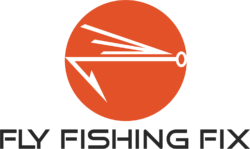
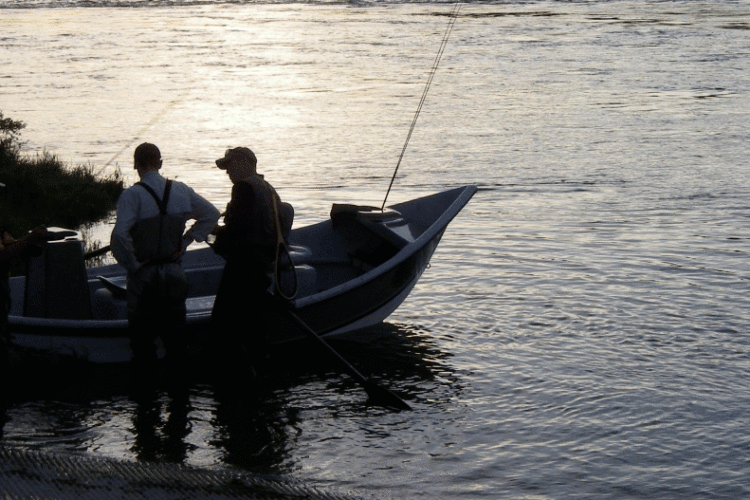






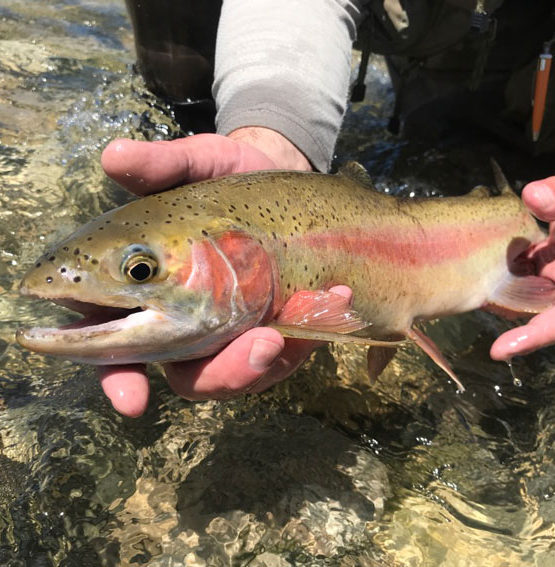
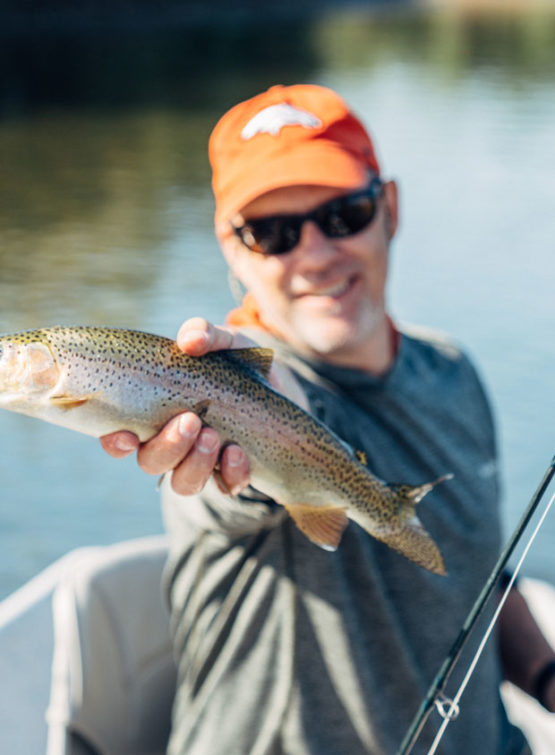
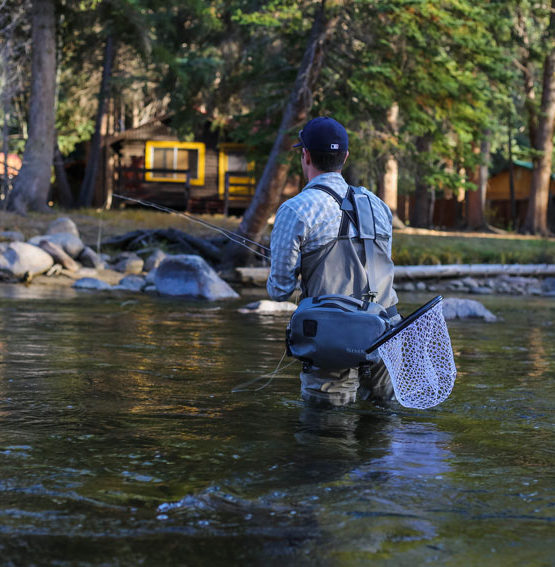
Wow I am impressed little Bro! You are the bomb!
Thanks Patsy! Appreciate the kind comment from big Sis!
Just went fishing with a guide and I couldn’t put it any better. You fly fish for a couple years and think your good then go with someone who’s guided for a 15 years and it blows your mind at the knowledge and just skill they have, and realize you have so much more to learn. Fly fishing is an art and each form from nymphing, streamer, dry fly is all completely different. Spending the $300 for me and my buddy to get 4 hours in a boat and learn countless things was beyond worth it. You’d think going to a guide to learn how to fly fish is the thing to do which it is, but i think it’s twice as important after you think your a good angler just to realize that there is unlimited amounts of things you don’t know and can learn. Haha.
I like how you mentioned that it is a good idea to take the entire experience into mind when you are tipping a fishing guide. This summer, I am wanting to go fly fishing during the trip I am going on, and I want to hire a guide to help me find a good spot. I will be sure to tip them properly if they provide a good fishing experience for me.
Thank you for taking the time to respond to our guide tipping post, Thomas. We always appreciate comments from our readers, especially when positive and encouraging! Please let us know how it goes with your summer trip!
I think the look of a fishing guide sounds like something fun to have. I want my potential guide to look the part. Not just some guy in normal clothes that will take me and my friends fly fishing.
Thanks for your comment, Chris. Looking the part doesn’t always mean that a guide is going to be good, of course. One of my favorite guides typically dresses in a short-sleeved collared shirt, beige pants and flip flops, but he’s a great guide. Nevertheless, a grisled, look-th-part fly-fishing guide can really add texture to your trip photos!
It really helped when you talked about fishing guides and their best qualities. Recently, my sister and I decided it’d be cool to take our families on a fishing trip. We want our family to have the best sea time ever, so we’ll be sure to check our fishing guide with your tips. Thanks for the advice on fishing guides and how to identify a quality one.
I appreciate what you said about how fishing guides can help you get good parts of the lakes. I need to get a fishing guide and charter for my father and I. I’ll have to consider getting a fishing charter with a guide to be more efficient with our tackle.
Good article
I think the most important thing about a guide is their knowledge of the River. We fish mainly Western Montana. The Yellowstone, Madison, and Beaverhead require very different fishing techniques. A few times we have had guides that mainly fish the Yellowstone or wade fish the park. They were terrible on the Madison.
I want to go on a fly fishing trip, but I don’t have a lot of experience with it. It makes sense that I would want to get a guide to take me! It would be nice to have someone with me who is a lot more experienced with this kind of thing.
I like how you mentioned that having a guide can help you have a better experience. My uncle mentioned to me last night that he wants to experience a fly fishing trip for his birthday next week and asked if I have any idea what is the best option to do. Thanks to this informative article and I’ll be sure to tell him that it will be much better if they consult fly fishing services as they can answer all our inquiries and will provide great memories and experience.